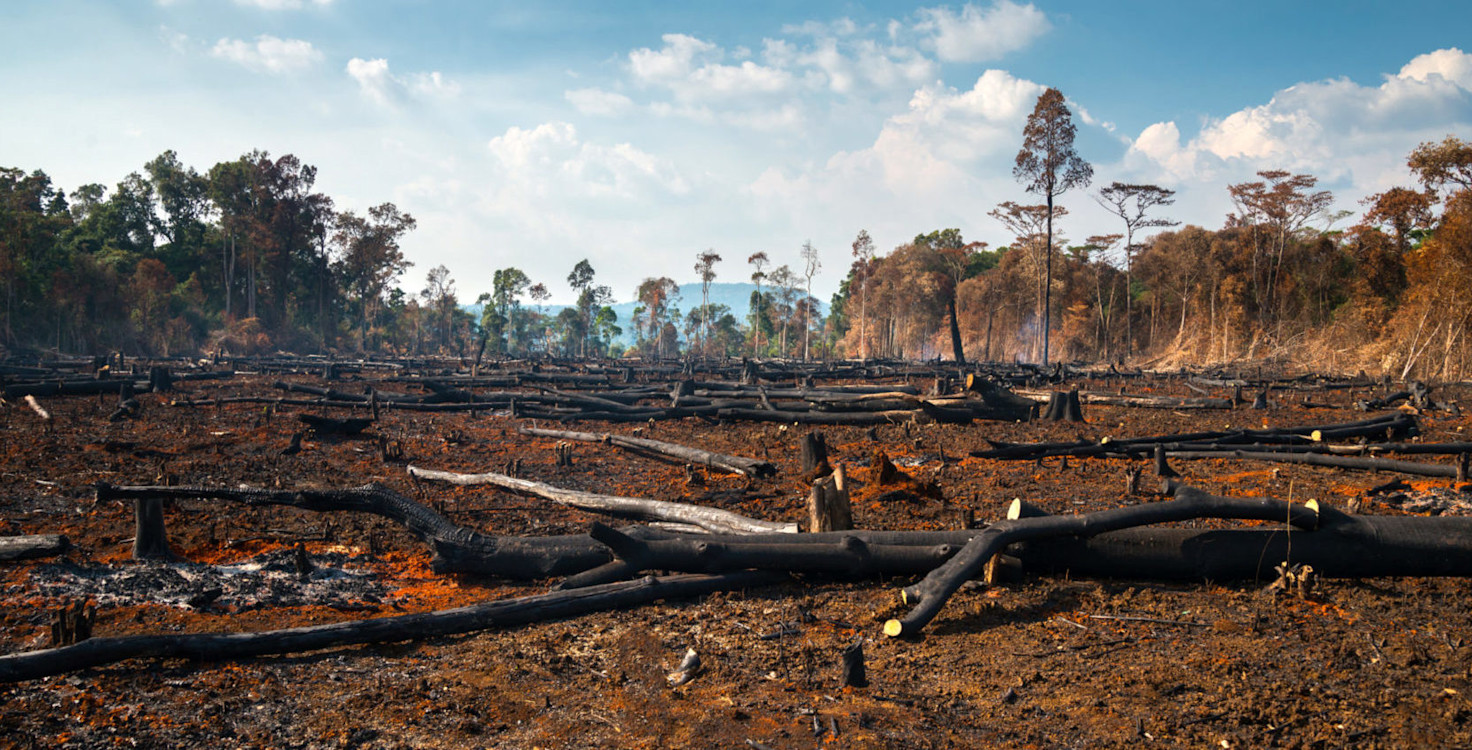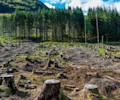September 2020 marked a grim milestone in Brazil as the country saw a record high month for fires in the Amazon and a 13% increase in fires compared to the first nine months of last year.
In some encouraging news, the UK’s Department for Environment, Food & Rural Affairs (DEFRA) has recently closed a consultation on a proposal to legally require businesses producing or trading forest-risk commodities in the UK to disclose due diligence procedures ensuring the commodities have been produced in accordance with local law.
Other than for timber and timber products, there is no legal requirement in the UK for businesses to ensure that sourced commodities are produced in line with local laws. Given that deforestation remains the second-leading cause of climate change—after the burning of fossil fuels—this is extremely concerning. Since deforestation is a complex global issue, it will require a coordinated response from governments, companies and investors
The aim of the proposal is to prevent embedded deforestation in commodities and products being imported to the UK. DEFRA suggests targeting this legislation to a relatively small number of large companies that use forest risk commodities, as these are most likely to be able to influence producers. It also minimises the regulatory burden on smaller businesses in the UK, whose action in the supply chain would be less likely to have an impact.
At first glance, the principles behind this proposal make sense. Focusing on the largest proportion of the supply chain is the most efficient way to exercise influence while small companies that exercise less influence—and would feel the burden of reporting the most—remain exempt. But this thinking is short-sighted. Any responsible company should already be following due diligence procedures in any market in which they operate, so the additional reporting burden is, in fact, relatively small
At FAIRR, we believe that to have the greatest impact, medium-sized businesses should also be considered in scope. This way, the proposed legislation would have as broad an impact as possible. If UK businesses can present a requirement that is as aligned and consistent as possible, this will send a strong signal to businesses in other countries that the UK will not tolerate illegal deforestation.
UK Government will need to follow through for law to be successful
According to DERFA, its approach is “designed to reinforce the existing efforts of producer countries to enforce their laws, so contributing to the sustainability of all the produce they grow, not just that exported to the UK.” DERFA also adds that its approach “prevents discrimination against producers following the law and encourages better practices, while not damaging livelihoods.” Indeed, these outcomes would be very desirable, but the UK government must pursue its commitments fully for this law to be effective.
This is certainly within the UK Government’s capabilities as it has done successful policy engagement in the past. For instance, the UK played a central role in developing the EU’s FLEGT (Forest Law Enforcement, Governance and Trade) Action Plan. The Action Plan worked with governments in timber-producing nations to strengthen the design and enforcement of their forest laws. By prompting producer countries to clarify their laws, it helped international companies to comply with them. Crucially, the plan recognised the role that timber-importing countries could play in reinforcing those efforts; first, by prohibiting illegal timber products from reaching the market; and second, by requiring the operators that place those products on the market to exercise due diligence.
Questions must be answered
With the legislation still in the early stages of development, several questions must be addressed to ensure as many relevant companies as possible are in scope. For instance, the UK government will need to clarify how it would determine which companies fall under this scope. This will be particularly difficult for those that indirectly source forest risk commodities. This will require the government to address how it will identify whether a company produces or sells products made with forest risk commodities.
A law is only effective if it is properly monitored and enforced. Thought will need to be applied to how the law would be policed and how fines for offenders would be calculated. Enforcement policies would need to be carefully constructed to incentivise compliance and drive tangible impact.
Support from all stakeholders is needed
In order for this legislation to be effective in curbing deforestation, significant efforts will need to be made from all actors involved. DEFRA will need to exhibit effective and sustained engagement with foreign governments. Halting illegal deforestation is a good starting point, but deforestation is still legally permitted in many regions, such as in the Cerrado biome in Brazil, where landowners are only required to preserve 20% of their properties.
Given the current political climate in Brazil, engaging with the government will be a long-term challenge. Last year, the government criticised the Amazon Soy Moratorium, a 2008 commitment from the country’s grain traders not to buy oilseed from land cleared in the Amazon. And even more alarming, in May, a bill (MP910) that would have legalised the occupation of indigenous lands by land-grabbers, usually for the purpose of deforestation, agribusiness or mining, was put before Congress, before ultimately failing.
Finally, DEFRA’s engagement with foreign governments will need to push them to develop their own monitoring and enforcement protocols and resources. COVID-19 has shone a light on this challenge, with forest fires and deforestation in the Amazon up this year, given the Brazilian government’s reduced monitoring capability.
For companies, they must continue to push the UK and foreign governments to take action on deforestation. Earlier this month during the consultation period, 21 food companies signed a letter to the government urging for tougher rules to protect rainforests. They must also continue to collaborate with their peers and advance traceability systems to ensure enforcement of anti-deforestation policies. Last month’s announcement by JBS that it will utilise the blockchain to ensure the traceability of the cattle it processes is the type of progressive measure that more firms need to adopt. While it is important that companies should prioritise high-risk regions, it is essential that policies cover all sourcing regions to ensure that deforestation is not pushed from one area to another.
Investors also have an important role to play. They must ask companies how they engage policymakers on climate and deforestation issues. And given the meat sector’s opaque supply chain from field to fork, they must ask companies how they are improving traceability of forest risk commodities in their supply chains, not only direct suppliers but all the way through to the source.
The UK government’s consultation and proposed legislation are steps in the right direction, but words must be converted into bold actions and not watered-down policies.
While the private sector is starting to push for the protection of our forest, progress is still to be seen and objectives to be met. Now is the time for the public sector to take centre stage and ensure commitments lead to real change.
FAIRR insights are written by FAIRR team members and occasionally co-authored with guest contributors. The authors write in their individual capacity and do not necessarily represent the FAIRR view.










